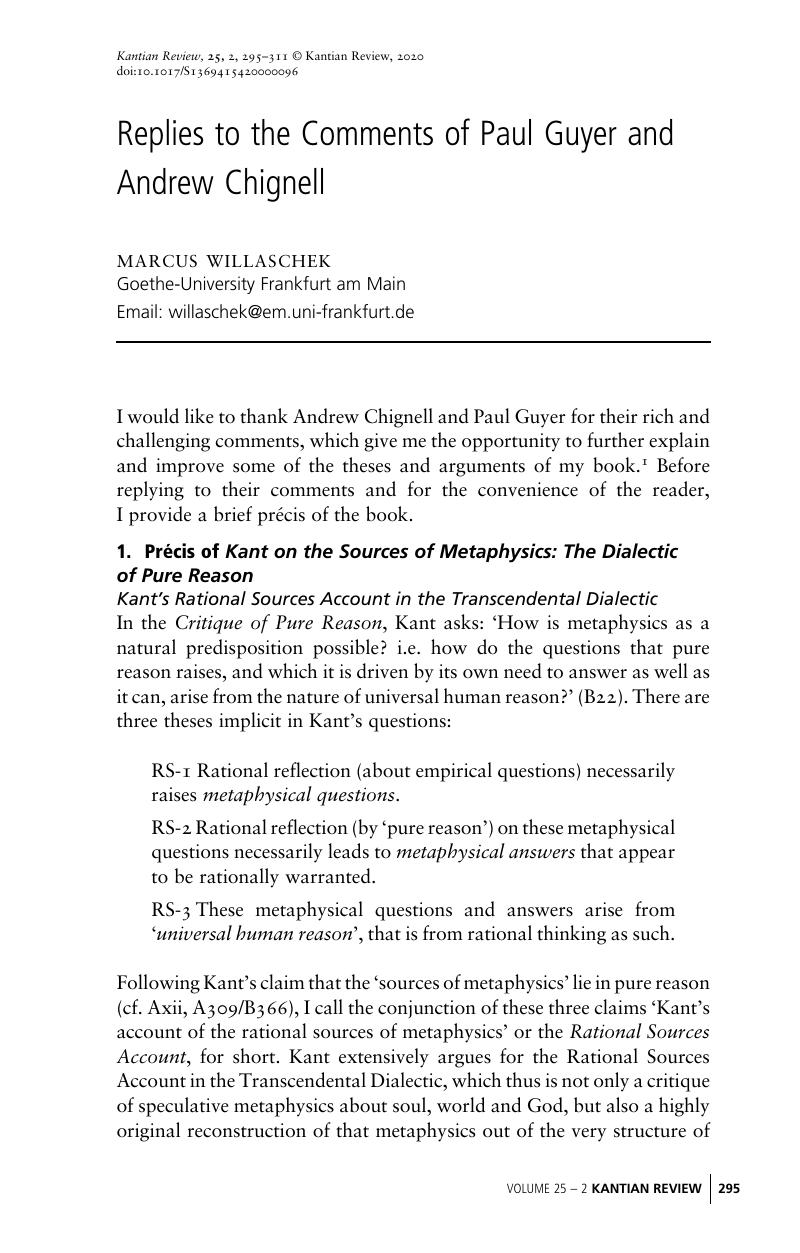Published online by Cambridge University Press: 30 April 2020

1 The contributions to this book symposium were first presented at an Author Meets Critics session of the North American Kant Society at the Pacific APA Meeting in Vancouver, 19 April 2019. I am grateful to Eric Watkins for making this event possible and to Lucy Allais for chairing the session in Vancouver. I would also like to thank the editors of Kantian Review for their willingness to publish our exchange in this journal. Further thanks to Fabian Burt for valuable comments and to Sean Neagle to helpful linguistic advice.
2 See Andrew Chignell’s contribution to this symposium and my response for a discussion of the role of transcendental realism in Kant’s Rational Sources Account.
3 Relatedly, Guyer takes the three steps of the general template of Kant’s Rational Sources Account that I reconstruct in chapter 4 of my book (a logical/real transition, a regulative/constitutive transition plus the assumption of transcendental realism) to represent the ‘purely critical strand of Kant’s argument’ (p. 3). But as I see it, these three steps as such are not critical of metaphysics at all, which can be seen from the fact that a proponent of metaphysical realism might accept them as a fair statement of her view.
4 This presupposes that the antithesis is interpreted as not implying the existence of a totality of (an infinite series of) conditions, but only as denying the existence of an unconditioned condition within the empirical world.
5 Note, by the way, that TRC is not meant to justify our tendency to use regulative principles constitutively, as Chignell (pp. 8, 14) assumes, but merely to explain it. Of course, Kant does not think that this tendency can be justified.